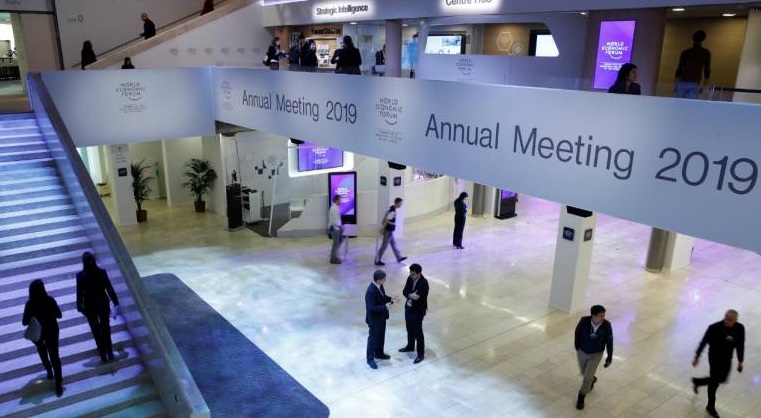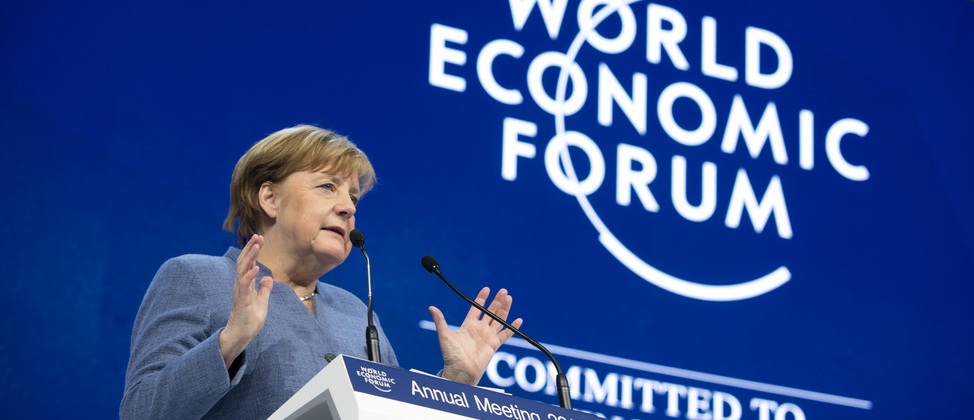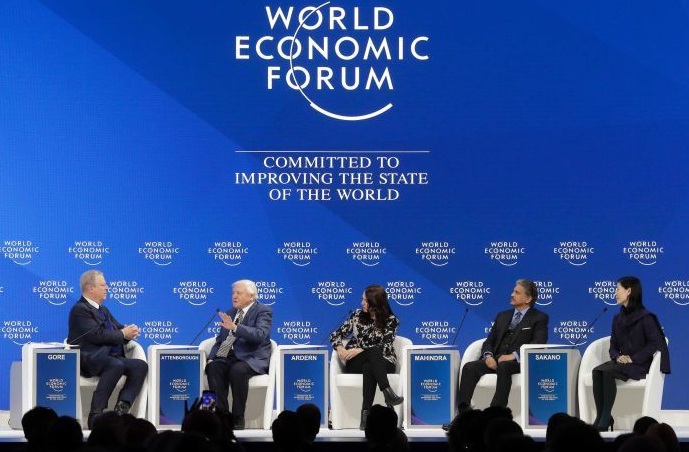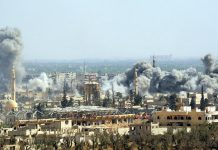APRIL 06, 2019: DAILY SUN
The theme of this year’s World Economic Forum (WEF) annual meeting held in Davos, Switzerland is –“Globalization 4.0: Shaping a Global Architecture in the Age of the Fourth Industrial Revolution”. Here Globalization 4.0 refers to the digitisation of manufacturing. This year WEF has focused its convening power, community engagement, insight generation and platform technology to shape a new framework for global cooperation. This forum also focused on the strategic ramifications of Globalization 4.0 and its future impact on global cooperation and the Fourth Industrial Revolution.
As we know the World Economic Forum is the International Organisation for Public-Private Cooperation. The flagship event of the WEF is the invitation-only annual meeting held at the end of January in Davos, Switzerland, bringing together chief executive officers from its 1,000 member companies, as well as selected politicians, representatives from academia, NGOs, religious leaders, media and other leaders of society to shape global, regional and industry agendas. The Forum’s mission is cited as “committed to improving the state of the world by engaging business, political, academic, and other leaders of society to shape global, regional, and industry agendas, such as the globalization, capital markets, wealth management, international conflicts, environmental problems “ through a series of high profile dialogues.
WEF has a big contribution in fostering systems leadership and global stewardship while recognising the actuality of a more complex, “multi-conceptual” world. This forum is based on some working principles which are very much pragmatic and effective in solving critical global issues. Because, as the WEF believes, dialogue is critical and must be multi-stakeholder-based, globalization must be responsible and responsive to regional and national concerns, international coordination must be improved in the absence of multilateral cooperation. WEF also believes that addressing the biggest global challenges requires the collaborative efforts of business, government and civil society and global growth must be inclusive and sustainable.

The participants of this huge annual meeting were Forum communities: Chief executive officers and chairs of our 1,000 Partner and Member companies actively engaged in the International Business Council, Community of Chairpersons, Industry Governors, Regional Business Councils and System Initiative Stewardship Boards. More than 250 political leaders from the G20 and other countries and heads of international organisations engaged in high-level dialogues facilitated by the Informal Gathering of World Economic Leaders (IGWEL). Members of the Forum’s Global Future Councils, Expert Network and Global University Leaders Forum collaborating with spiritual and cultural leaders and representatives from major civil society, labour and media organisations. Technology Pioneers, the Global Shapers Community, the Forum of Young GlobalLeaders and the Schwab Foundation for Social Entrepreneurship, communities representing a new generation of innovators and entrepreneurs.
A series of global dialogues took place in this year’s meeting in Davos that has focused on some interrelated areas. A global dialogue on the geopolitics and a “multiconceptual” world to understand major ongoing changes in international relations and to enable candid and constructive discussion on how to drive future cooperation along with a global dialogue on peace and reconciliation to catalyse large-scale, multistakeholder support for diplomatic efforts on key fault lines around the world, especially at a time when strategic geopolitical shifts create the danger of vacuums and/or unilateralism and escalation.
A global dialogue also took place on the future of the economy to review principles for economic and social decision-making that need to be redefined to better reflect the structural changes inherent in the Fourth Industrial Revolution along with a global dialogue on financial and monetary systems to jointly shape our monetary and financial systems by not only leveraging new technologies, such as cryptocurrencies and blockchain, but also making the systems more resilient for achieving sustainable growth and long-term societal well-being.

Another global dialogue was on industry systems that anticipates how the Fourth Industrial Revolution provides opportunities to substantially enhance the availability and delivery of services in the areas of health, energy, communication and transport, among others, along with a global dialogue on technology policy to define the principles for new and emerging technologies, such as artificial intelligence and gene editing, to ensure that they are underpinned by the necessary ethical principles and values-based framework.
Global IT specialists met in a dialogueon cyber-security to ensure that digital innovation and the technological backbone of the Fourth Industrial Revolution are both secure and trusted along with a global dialogue on risk resilience to promote systems thinking to radically improve our collective and integrated management of the key environmental systems (climate, ocean and biosphere) upon which our societies and economies depend.
Dialogues also took place on human capital to revisit the notion of work substantially changing and to rethink its future and the relevance of human capital along with a global dialogue on a new societal narrative to shape a new narrative for societies, moving from a consumption and materialistic fixation to a more idealistic, humanistic focus.
There had also been a crucial dialogue on institutional reform to rethink the global institutional frameworks that emerged in the 20th century and adapt them to ensure they are relevant for the new political, economic and social context for the remainder of the 21st century along with a global dialogue on economic cooperation to create a new framework of rules and institutions integrating all aspects of global economic cooperation, including intellectual property, movement of people, competition policies, data protection, exchange rates, fiscal policies, state-owned enterprises and national security.

At the end of this year’s meeting we have some recommendations and proposals from the “Global Dialogues” which would be integrated into the Forum’s 14 System Initiatives which curate, align and advance the efforts of the most globally relevant and knowledgeable individuals and institutions that are shaping the future. Those proposals are- shaping the future of consumption, the future of digital economy and society, economic progress, education, gender and work, energy, environment and natural resource security, food systems, financial and monetary systems, international trade and investment, health and healthcare, long-term investing, infrastructure and development, information and entertainment, shaping the future of mobility, manufacturing and production.
This year’s annual meeting was the foremost gathering of top leaders from politics, business, civil society and academia to shape global, industry and regional agendas in the context of Globalization 4.0 and the Fourth Industrial Revolution. In the true “Davos Spirit”, the aim is to advance these agendas with bold ideas and exciting opportunities to consider in the year ahead. WEF is such a high profile forum where the organisers arrange highly knowledgeable and informative dialogues of world’s top most genius and specialists of their respective fields, big think tanks, policy makers, business tycoons, CEOs and the most influential personalities out of which the present world could get a clear guidelines for solving most of the burning and critical issues of the globe.
© Copyright: Reserved by the writer (Noore Alam Siddiqui)





































